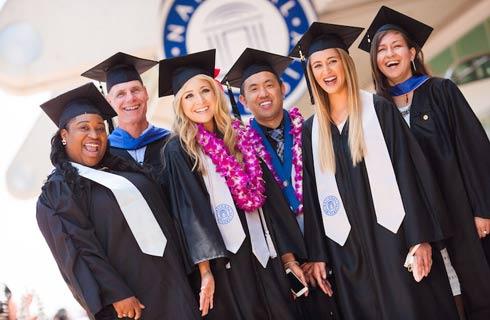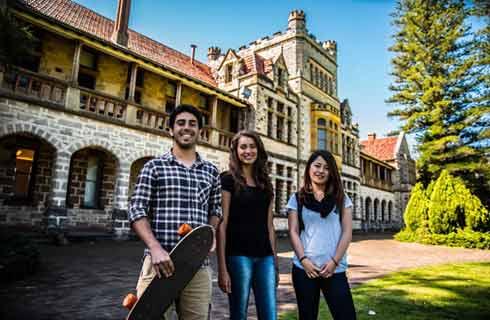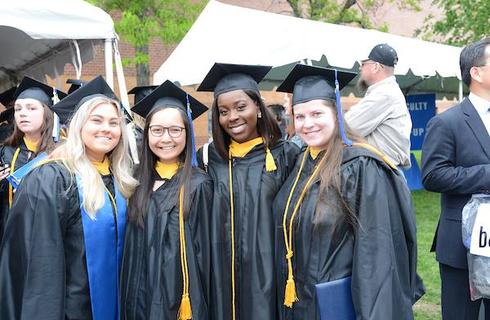荣誉音乐和文化艺术学士学位-士嘉堡
Honours Bachelor of Arts in Music and Culture - Scarborough

学历文凭
Bachelor Degree with Honours

专业院系
Department of Arts, Culture and Media

开学时间

课程时长

课程学费

国际学生入学条件
IDP—雅思考试联合主办方

雅思考试总分
6.5
- 雅思总分:6.5
- 托福网考总分:89
- 托福笔试总分:160
- 其他语言考试:Pearson Test of English (PTE) Academic - Overall score of 65 with no part below 60.
CRICOS代码:
申请截止日期: 请与IDP联系 以获取详细信息。
课程简介
Music and Culture offers innovative programming that focuses on music as it is experienced and lived today in all its diversity and complexity. Our faculty engage in performance, creation and composition, research and scholarly leadership, and community engagement — all of which embrace the program’s commitment to access inclusion and empowerment. The Music and Culture program serves the diverse needs and interests of UTSC students. In providing cultural, artistic, intellectual, and civic leadership, we put music in conversation with a variety of social, cultural, and historical issues. Music and Culture course offerings challenge students to work towards self-directedness and develop their capacities as creative leaders in community cultural development. Students create, join, and enliven musical and artistic communities, both on the UTSC campus and beyond, with a focus on civic participation, arts entrepreneurship, health and wellness, and community development.Multiple experiential learning opportunities across the program prepare students for a wide range of professional careers in areas related to music and are also ideally suited for those interested in music as part of lifelong learning and engagement. The Music and Culture program complements studies in many fields, including adult education and community development, arts management, city studies, computer science, health studies, historical and cultural studies, media arts, media studies, music education, psychology, sociology, studio art, and visual studies.The Music and Culture program includes and accommodates students of all musical backgrounds and abilities. Some courses involve music creation and performance dependent on prior experience. The performance courses, for example, are open-enrollment but are not a place to learn music for the first time. The Small Ensembles course provides opportunities for students whose musicianship (of all types) may not align with the three large ensembles (Concert Choir, Concert Band, String Orchestra). Courses in the Music & Society area of focus (below) are generally lecture-based and involve rigorous scholarly training mixed with experiential learning opportunities in field research and community engagement.
相关申请
 预科
预科 奖学金
奖学金 实习机会
实习机会 在校学习
在校学习 跨境学习
跨境学习 校园授课-线上开始
校园授课-线上开始 在线/远程学习
在线/远程学习
开学时间&学费
学费信息仅供参考,请与IDP联系以获取详细信息
| 开学时间 | 时长 | 学费 | 地点 |
|---|
学校排名

世界排名21
数据源:
泰晤士高等教育世界大学排名
关于多伦多大学

多伦多大学(University of Toronto),始建于1827年,坐落在加拿大的第一大城市多伦多,是加拿大的一所顶尖学府,亦为加拿大传统四大校之一。安大略省政府及议会环绕在市中心的女王公园四周,现已发展成为一所“一主两翼”格局的世界知名研究性大学--坐落于市中心的圣乔治校区(St. George),历史最为悠久,与3个更小的大学联盟并有享有七大学院制,与十座教学医院有着密切关系;东西向延伸至世嘉堡与密西沙加,UTSC有着乡村般的风光,风景别致,搭乘TTC一小时路程;UTM则是在西边,有校车往返。在学术及研究方面,多伦多大学一直处于领先地位。其经费、捐款、国家教授奖项、研究出版规模和藏书量皆为加拿大之首。多伦多大学出版社在加拿大乃至全北美影响深远。实行独立书院制的学府,荣获诺贝尔奖的教授人数是加拿大最多的。维多利亚学院是其最富有的学院之一 提供更多奖学金和相关设施。多伦多大学亦为美国大学协会中仅有的两所非美国学府之一。多伦多大学每年发表的科研论文数量在北美仅次于哈佛大学,引用数量位居世界前五。主要贡献:干细胞及胰岛素的发现,电子起搏器、多点触摸技术、电子显微镜、抗荷服的发明和发展,NP完全理论,以及发现首个经核证的黑洞。
本校相关课程
其他相关课程

音乐文学士[一般]
 滑铁卢大学
滑铁卢大学学历文凭
Bachelor Degree
开学日期
课程费用总额


音乐文学士(荣誉学位)
 圣弗朗西斯泽维尔大学
圣弗朗西斯泽维尔大学学历文凭
Bachelor Degree with Honours
开学日期
课程费用总额


音乐学硕士
 达尔豪斯大学
达尔豪斯大学学历文凭
Masters Degree
开学日期
课程费用总额


音乐学士
 达尔豪斯大学
达尔豪斯大学学历文凭
Bachelor Degree
开学日期
课程费用总额


音乐文学士
 爱德华王子岛大学
爱德华王子岛大学学历文凭
Bachelor Degree
开学日期
课程费用总额


音乐教育学士
 爱德华王子岛大学
爱德华王子岛大学学历文凭
Bachelor Degree
开学日期
课程费用总额
















